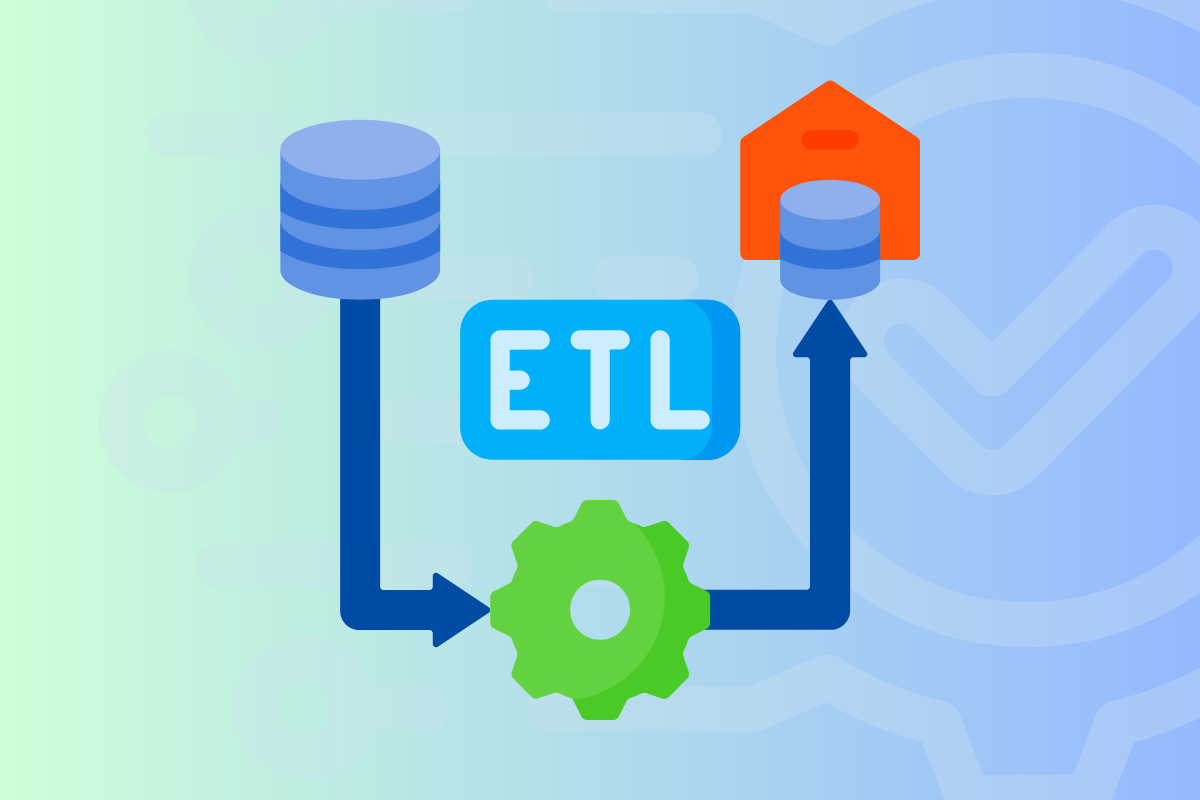Data Discovery Tools (Quick Reference Guide)

Just as a seed buried too deep won’t sprout, valuable data, when lost in the noise, fails to provide value.
That’s why data discovery tools are so important. Odds are you’re not starved for data; you’re buried in it.
Also known as data catalogs, data discovery tools are specialized software solutions designed to navigate, identify, and visualize data sources within an organization. They can range in terms of complexity, ease of use, and feature sets, but all are designed to help illuminate the dark corners of your data repositories, and are a critical component of your data governance practice.
Here’s an overview of eleven popular data discovery tools (in no particular order) that are available today.
Table of Contents
- Collibra
- Informatica
- Oracle
- SAS
- Talend
- Guardium ISDC
- Select Star
- OneTrust
- Atlan
- Alation
- data.world
- The bigger picture: why your data discovery tool needs data observability
Collibra
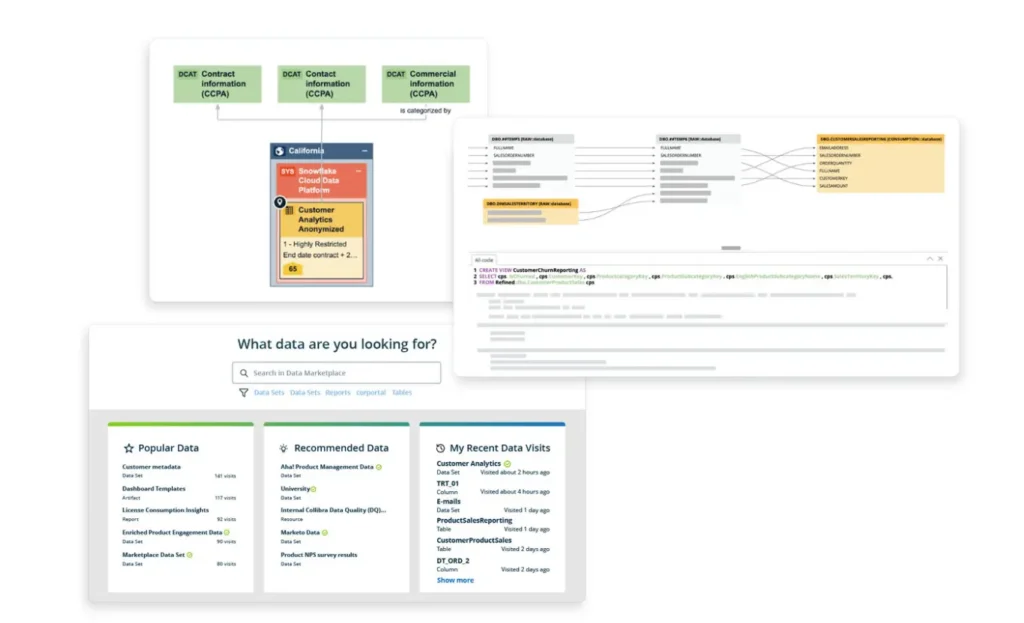
Collibra’s Data Catalog is designed to provide a single source of truth for all your data needs. It emphasizes the importance of data intelligence, allowing users to find, understand, and trust their data. With features like automated data classification, data quality checks, and data lineage, Collibra helps provide both accessibility and an extra level of reliability for your data.
Informatica
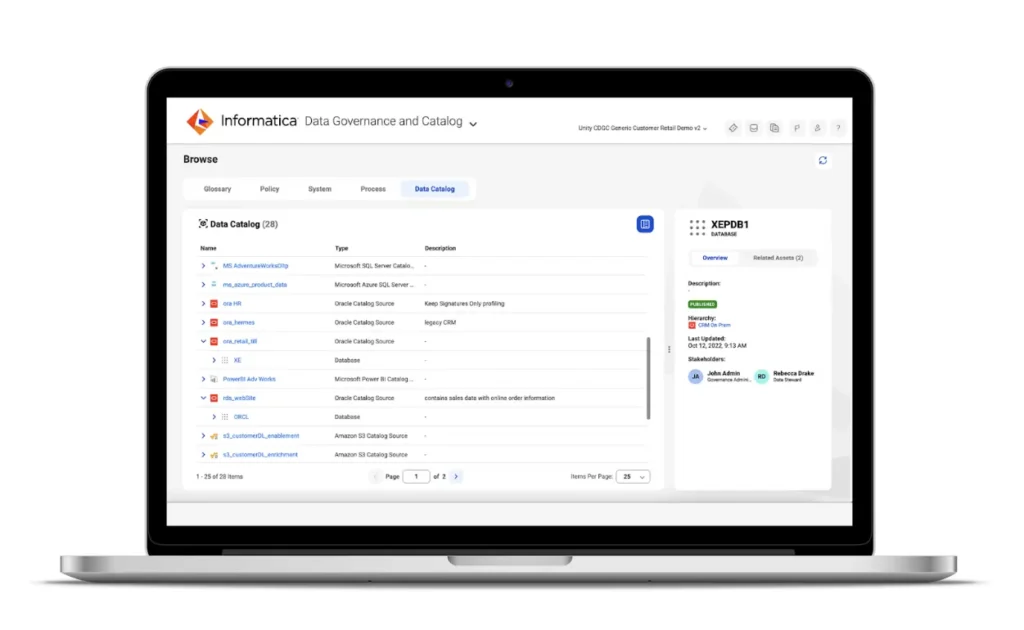
Informatica’s Data Catalog boasts of AI-powered data discovery, ensuring that users can quickly find and understand their data. It offers a 360-degree view of your data, including data lineage, relationships, and rich metadata. Informatica’s data discovery tool also emphasizes collaboration, allowing teams to share data knowledge and insights.
Oracle
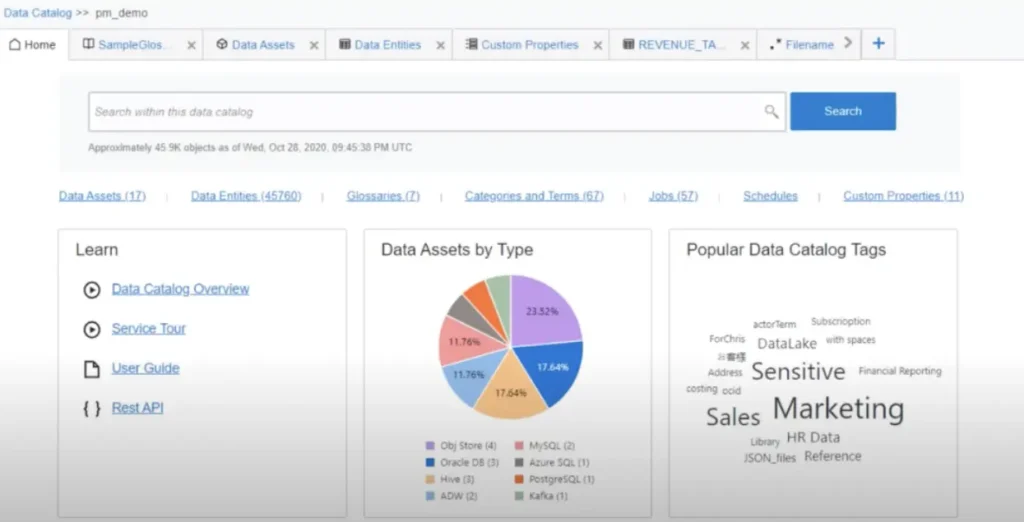
Oracle’s Data Catalog provides a comprehensive solution for harvesting, transforming, and governing data across the enterprise, in Oracle Cloud and beyond. It offers features like data profiling, data lineage, and data quality, providing enterprise users a holistic view of their data landscape.
SAS
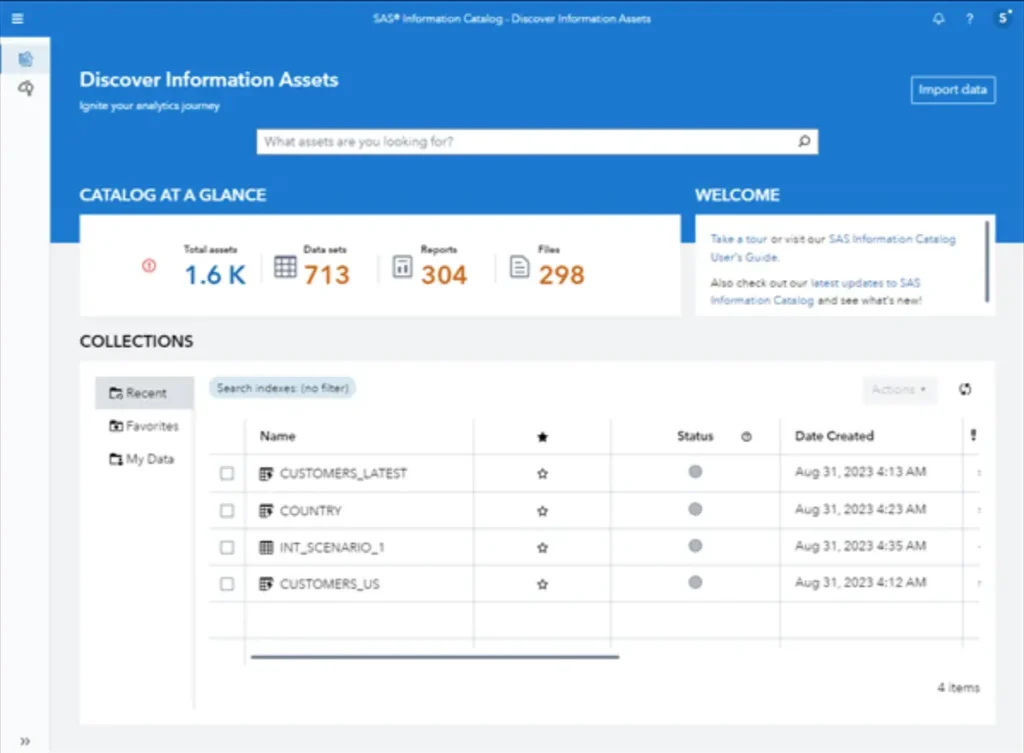
SAS’ Information Catalog makes it easy to locate, understand, and leverage your data for informed decision-making. It automatically ingests and enriches metadata by using discovery agents to crawl through your libraries as well as bringing to the table features like advanced search capabilities, enhanced security settings, and integrated data usage insights. Additionally, the catalog integrates with tools like the SAS Lineage Viewer, enabling users to explore data relationships further.
Talend
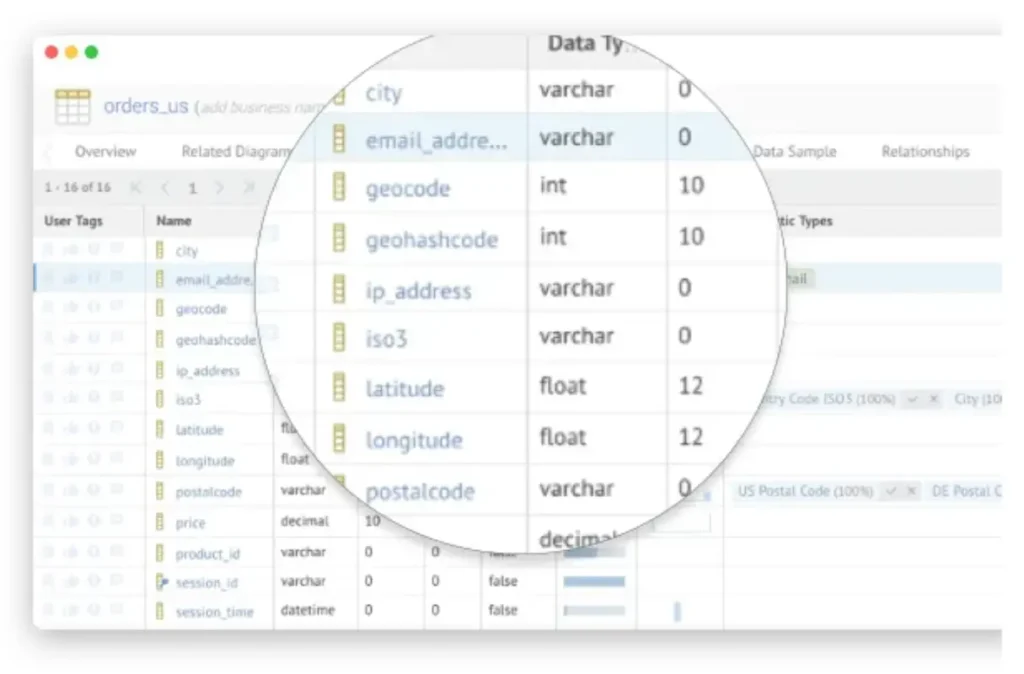
Talend’s Data Catalog offers a unified platform for data integration and governance. It emphasizes automation, with features that automatically crawl, profile, and organize data. The platform also promotes collaboration, allowing teams to improve data accessibility and relevance together.
Guardium ISDC
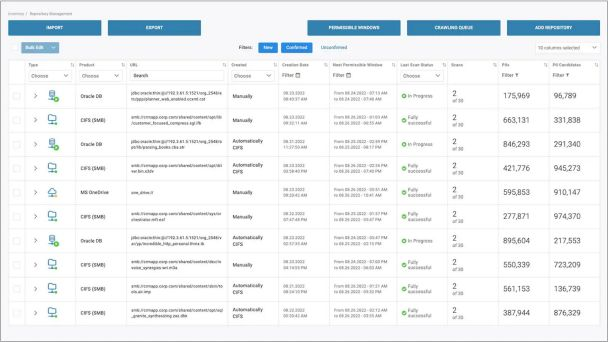
Part of the IBM Guardium family, the IBM Security Discover and Classify (ISDC) software is designed to discover and classify sensitive data across both on-premise and cloud environments. Sometimes classified with “sensitive data discovery tools,” this solution excels at identifying both known and unknown sensitive data, including data that’s structured or unstructured, in motion or at rest. With the power of AI and ML, ISDC self-trains to pinpoint files containing sensitive data, ensuring higher accuracy while minimizing false positives.
Select Star
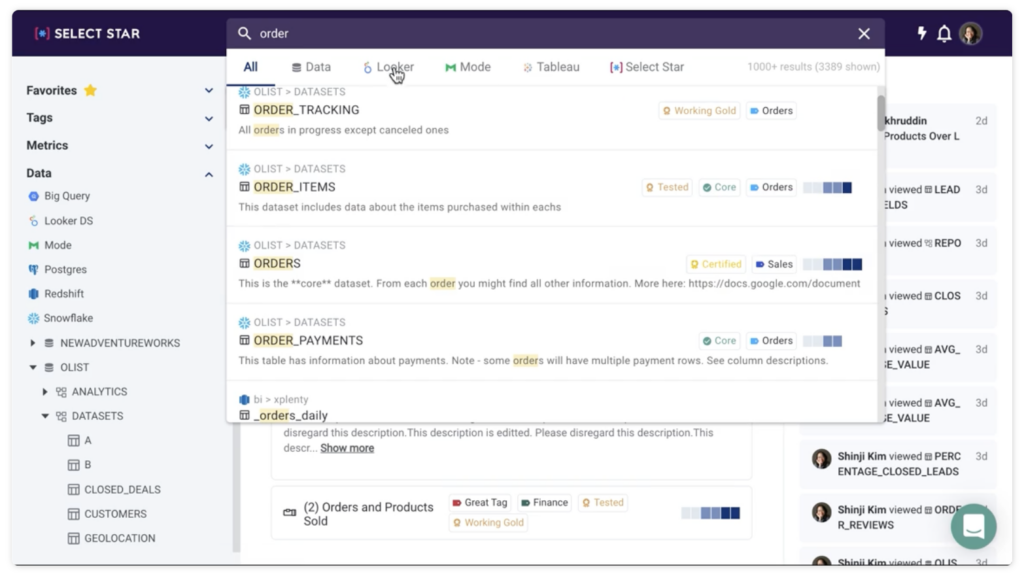
Select Star is a tool that automates data discovery by programmatically analyzing and documenting your data to enable data democratization and governance. It connects directly to data warehouses and BI tools to collect metadata, query history, and activity logs from each data source that can then be used to help data teams build metrics, definitions, and workflows. In addition, it enables teams to organize and describe their data across all their data tools from a single central location.
OneTrust
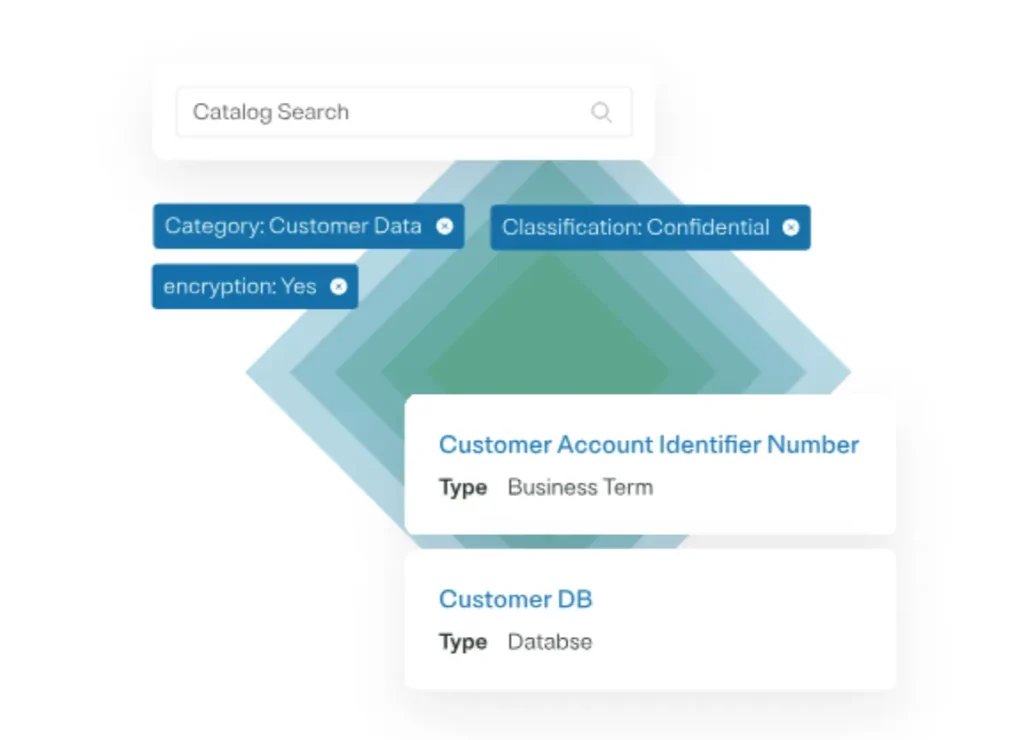
OneTrust’s Data Discovery tool emphasizes understanding and controlling the lifecycle of sensitive data. It offers AI-powered data discovery across structured and unstructured data, allowing businesses to tag data with regulatory context and monitor it over time.
Atlan
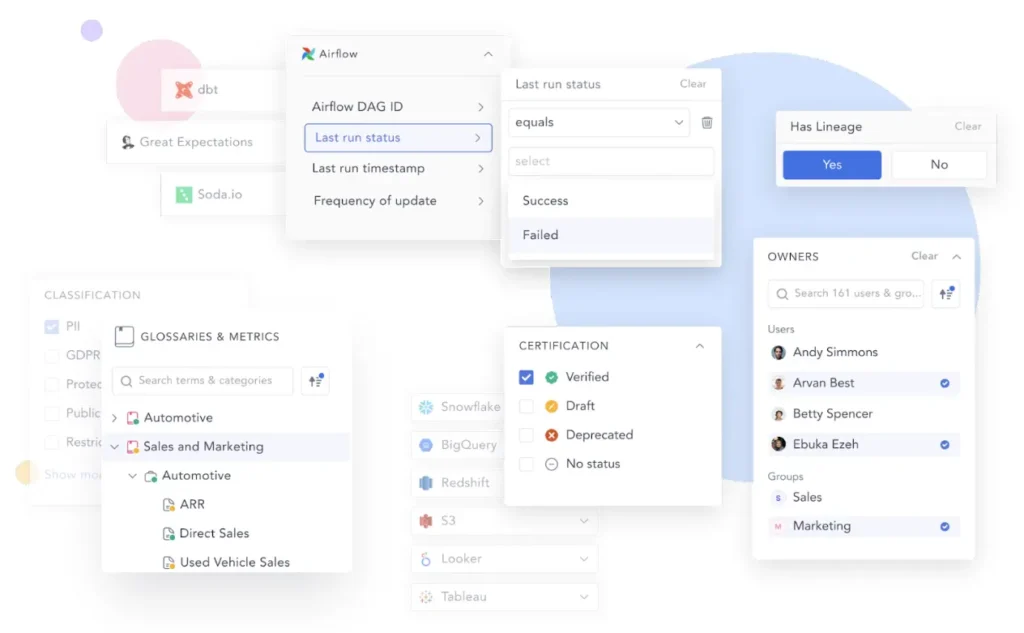
Atlan’s Data Discovery Catalog introduces a unique feature in the data catalog space called “Archie Bots” that leverage generative AI to enrich data with natural language descriptions. The platform offers a chat-like experience for data discovery, ensuring that users can easily find and understand their data.
Alation
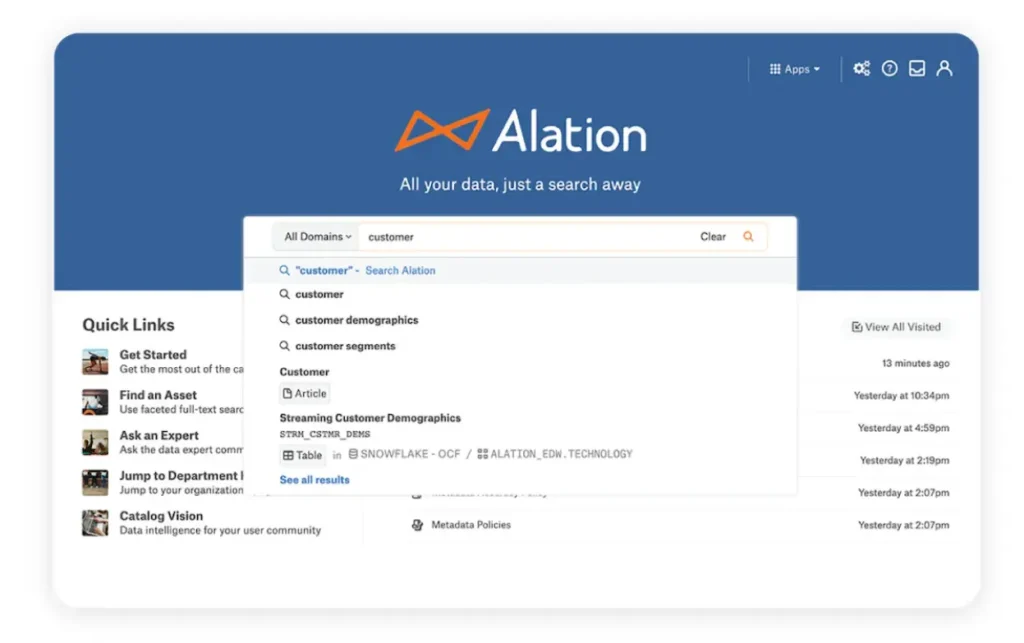
Alation’s Data Catalog leverages artificial intelligence to streamline the process of data discovery, data governance, and data stewardship. It can connect to a broad range of source types, including relational databases, file systems, and BI tools. They call their tool “the social network for data” due to its collaborative nature – users can query, comment on, and enhance data assets, link projects within the catalog, share SQL queries, and favorite data assets to track changes.
data.world
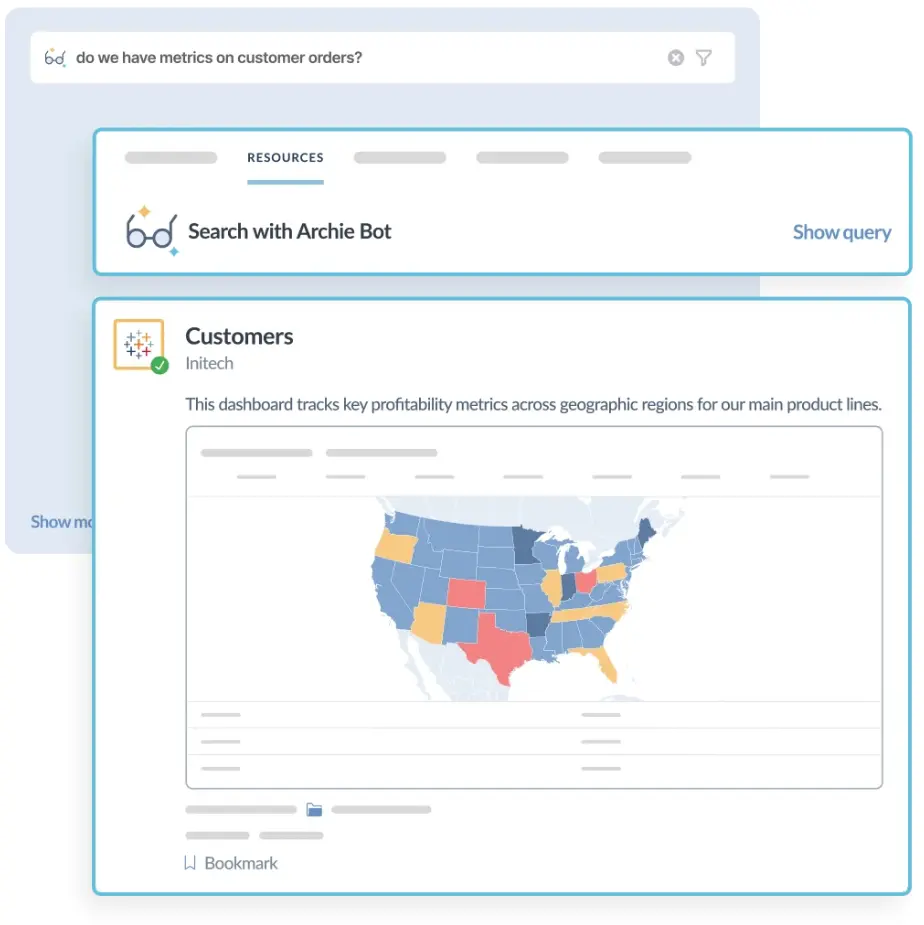
Data.World’s data discovery tool emphasizes speed, claiming to deliver results 10x faster than alternatives. It offers features like AI-assisted data discovery and a knowledge-graph powered search, ensuring that users can quickly and confidently find the data they need.
The bigger picture: why your data discovery tool needs data observability
As we wrap up our exploration of data discovery tools, it’s essential to look ahead. Data catalogs are invaluable, but as data grows in volume and complexity, there’s an increasing need for data observability tools as well.
Just as a catalog helps you find a book in a library, data observability ensures that the “book” is accurate, up-to-date, and reliable. And this is where solutions like Monte Carlo come into play, offering insights into data health, usage, and lineage. If you rely heavily on data-driven decisions, staying ahead of the curve is paramount. So, as you invest in data discovery, don’t forget to keep an eye on data observability.
After all, what’s the use of finding your data if you can’t trust it?
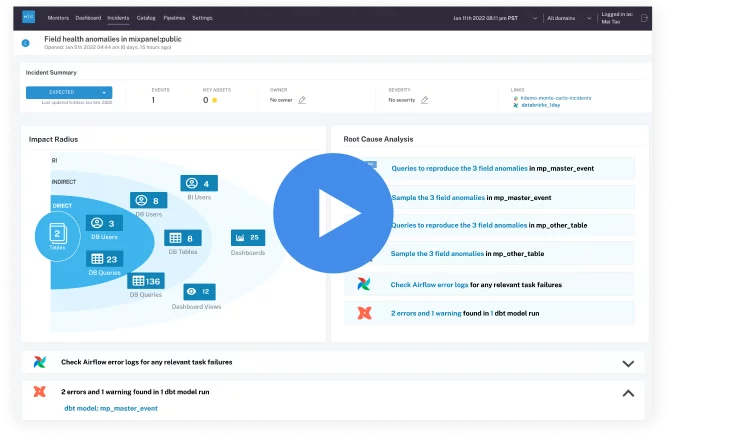 Product demo.
Product demo.  3 Steps to AI-Ready Data
3 Steps to AI-Ready Data 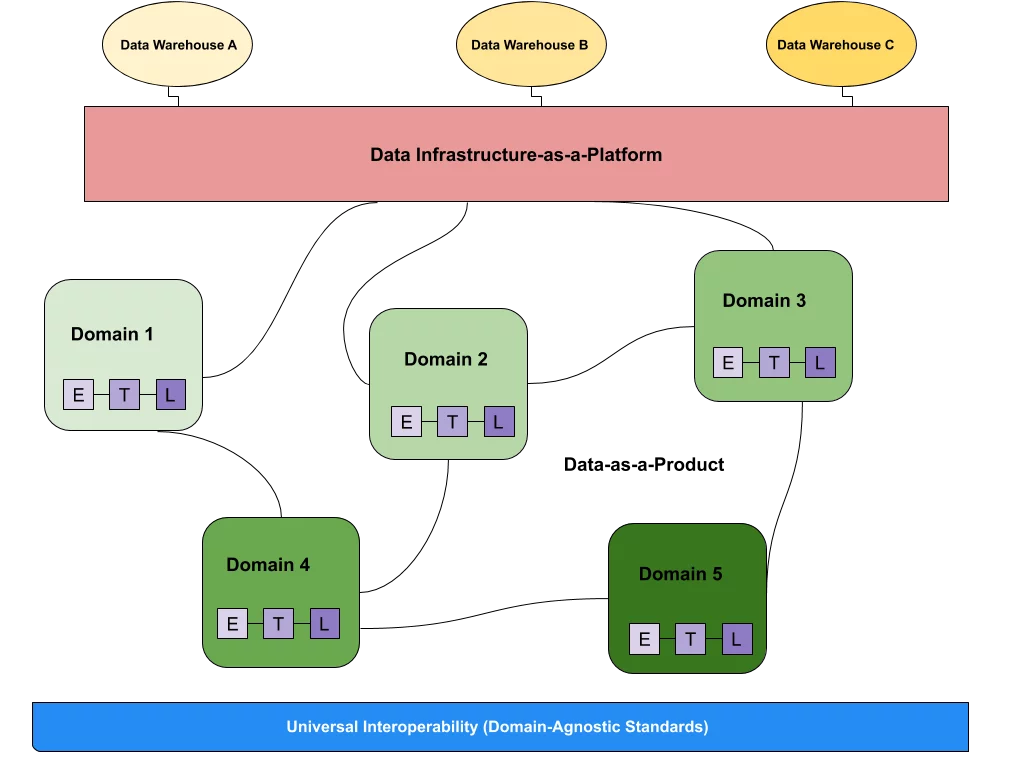 What is a data mesh--and how not to mesh it up
What is a data mesh--and how not to mesh it up 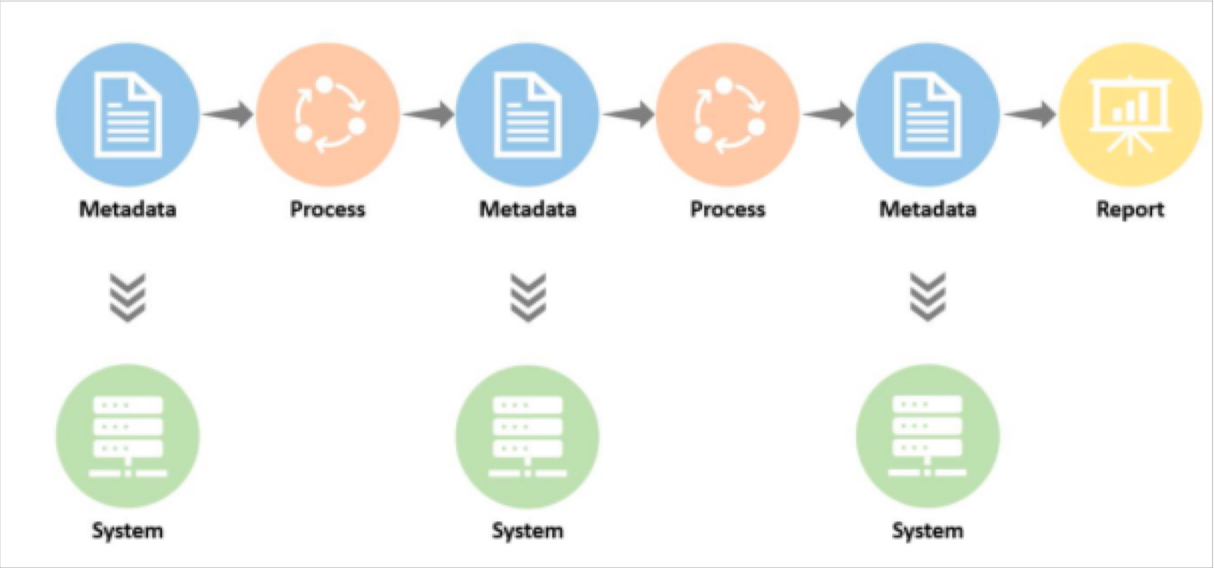 The ULTIMATE Guide To Data Lineage
The ULTIMATE Guide To Data Lineage 